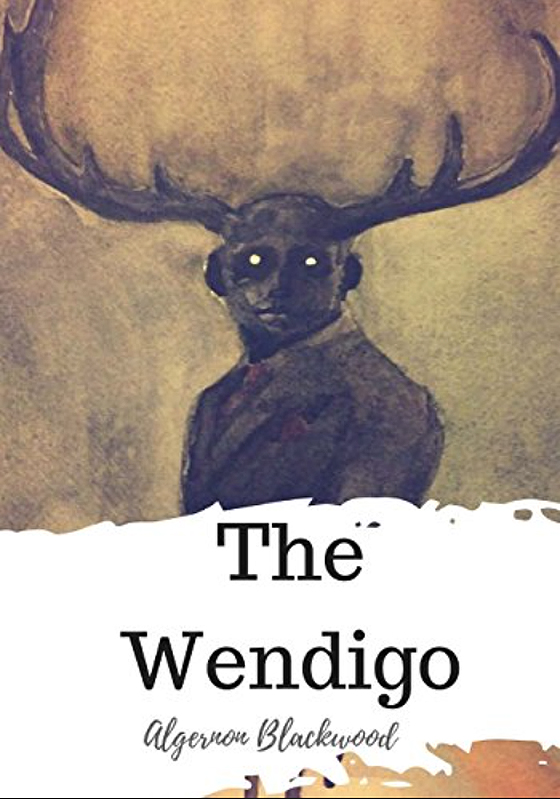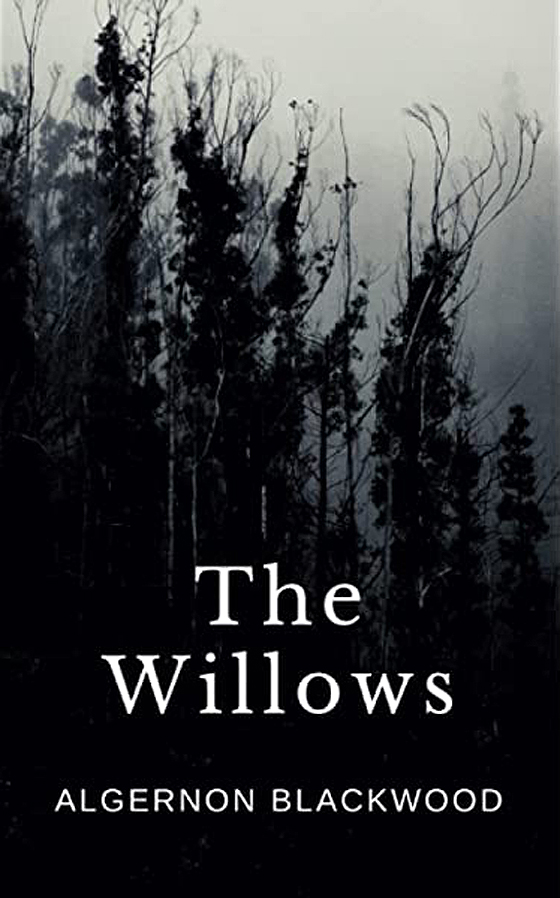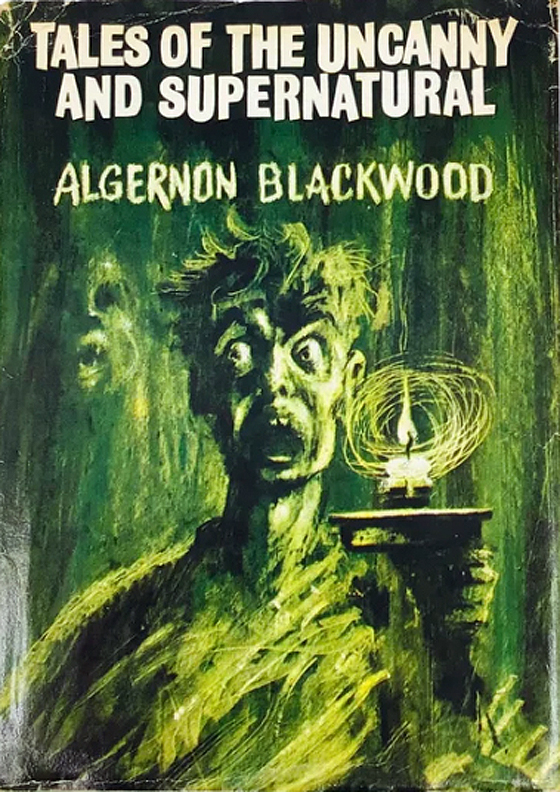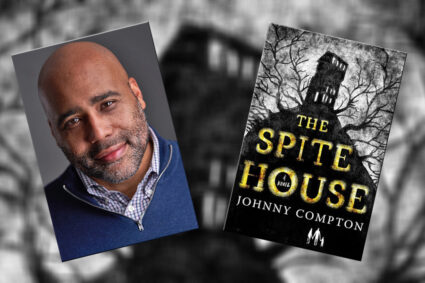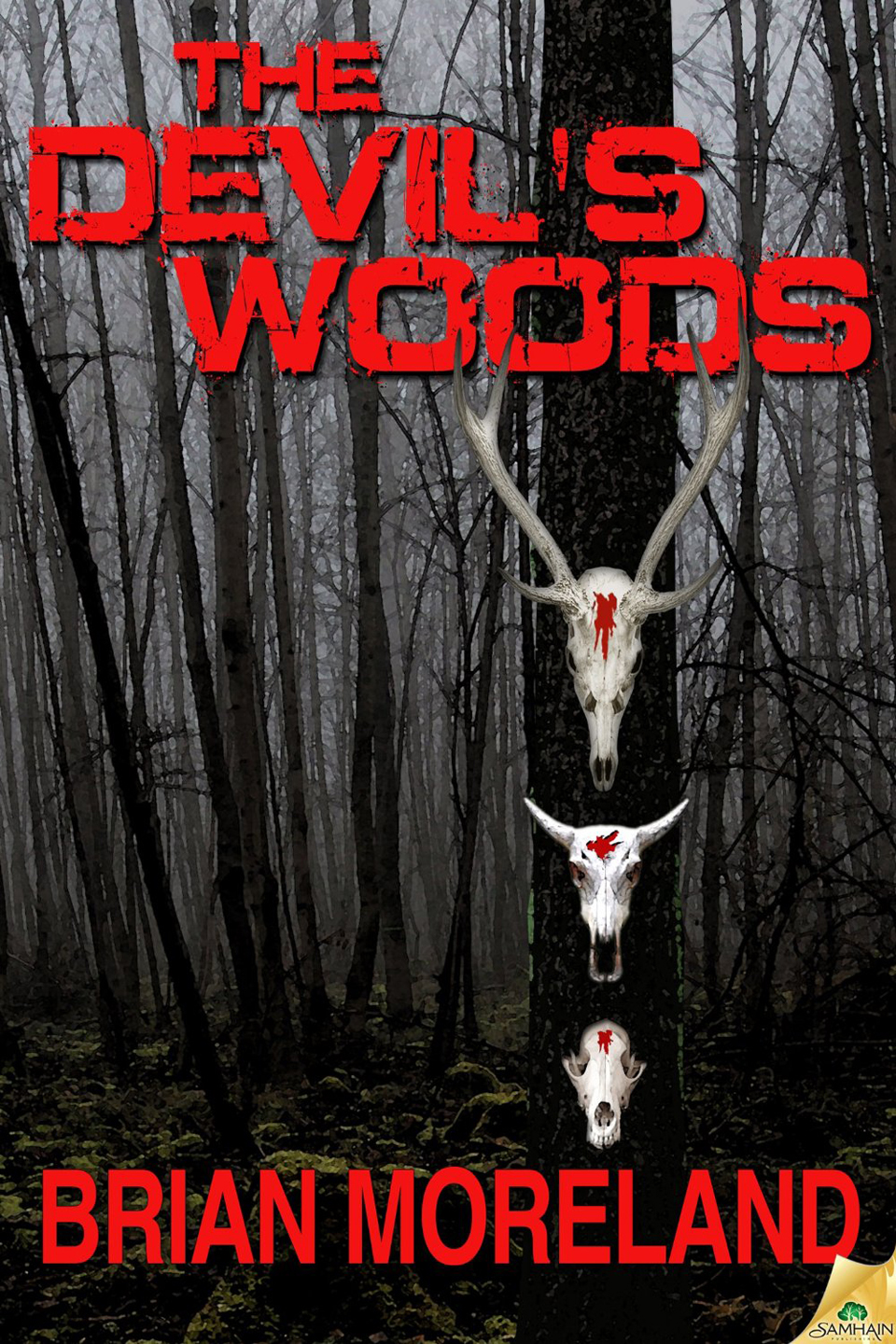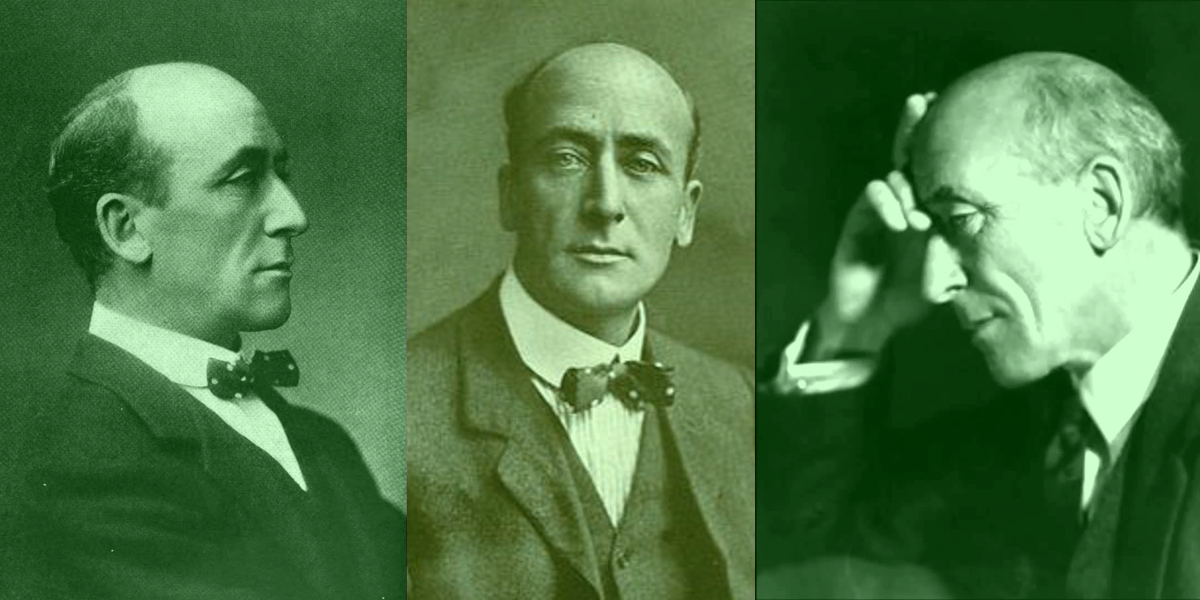
“The dark side of life, and the horror of it, belonged to a world that lay remote from his own select little atmosphere of books and dreamings.”
If any man ever had a name more suited for a writer of strange and supernatural tales than Algernon Blackwood, it would be difficult to imagine. The very name seemed to promise darkness and mystery. Over the course of his long and prolific career, Algernon Henry Blackwood did his very best to live up to that promise.
The ubiquitous horror maven S.T. Joshi, whose opinion always seems to be the last word on the subject of supernatural writers, considered him the most consistently excellent writer of weird fiction, surpassing even the likes of Lovecraft and M.R. James. Certainly, Blackwood produced a greater sheer volume of strange tales over a longer span of time. Yet somehow, his name is not as well-known as those worthies and many others besides.
In this little diatribe, I hope to shine more of a light on Blackwood’s career as well as his character and extraordinary life. That life was full of so many interesting twists and turns that a fat volume would scarcely do it justice, so I will try to cover the major aspects of it in a compact fashion.
Blackwood was many things during his long life, but one common thread through it all was his love of nature. He was always drawn to forests, fields, and mountains, whether it was in his native England, the vast wilderness of Canada or the mountains of the Swiss Alps. This abiding connection to nature was also a prime force in his writings. A good deal of his fiction revolved around the more forbidding and unknown aspects of the natural world. In Blackwood’s world, nature was an awe-inspiring force not to be trifled with. It could be playful, mysterious, or downright malevolent, but it was always beyond man’s knowledge and never to be completely mastered or understood.
A Born Storyteller Finds His Way….
Blackwood was born in 1869 in Shooter’s Hill, a location in Kent that would later be wholly absorbed by the London suburbs. His family was comfortably well off; his father was a postmaster and his mother had royal blood. Algernon’s early years were unremarkable, but the more education he received, the more unorthodox his ideas became. He was always interested in the occult and Eastern religions, a position that put him at odds with his father, who was known to be a strict Christian.
After graduating from Wellington College, Blackwood decided to travel, both physically and mentally, and he took on a wildly eclectic variety of jobs, which no doubt gave him a very broad base of experiences to draw on as a writer. He spent a good deal of his 20s in both the US and Canada. In New York City, he worked as a staff reporter for the Times and tended bar. An accomplished musician, he also tutored students in the violin.
It was in Canada that he had his most striking experiences and where he fell in love with the vast forests and mountains. He ran even a hotel there for a stretch and tried his hand as a dairy farmer in Ontario. He spent a good deal of time in the wildernesses of Ontario and Quebec and the dark loneliness of the Canadian woods hugely influenced one of his greatest horror stories, “The Wendigo”.
Through all his travels, he kept an interest in occult and esoteric philosophies, which he maintained all his life. He was one of the original founders of the Theosophical Society in Canada and also a member of the Hermetic Order of the Golden Dawn, the controversial occult society that also included Aleister Crowley, whom Blackwood knew personally. He had a particular interest in Rosicrucianism and Buddhism and studied the Jewish Kabbalah as well. Very few writers of the supernatural were as well versed in the actual practice and study of it as Blackwood was. He was even a member of The Ghost Club, the original “ghost hunting” organization.
The Stories….
In his late ‘30s, he returned home to England and set about becoming a writer of immense productivity, with most of his work firmly set in the supernatural. He was a born storyteller and in later years, he would enjoy reading his stories aloud for radio and even some early television performances. Most of his output was clearly meant for adult audiences but he also wrote some stories for younger readers, like his whimsical novel “Sambo and Snitch”.
Although not all of Blackwood’s writings involved the supernatural, most were, and they fell into two general categories: ghost stories and tales that involved some sort of mystery of the natural world. He was equally adept at both. One of his most well-known ghost stories was “The Empty House”, which remains a quintessential tale of ghost hunters finding more than they bargained for while investigating a haunted house. One gets the impression that the central character of the story is a thinly veiled version of Blackwood himself. This story alone influenced many later writers.
He was also one of the creators of a “supernatural sleuth” type of character…a man who investigated supernatural mysteries. Blackwood’s sleuth was called John Silence and he was quite a popular one … a man who believed in the unknown but who also had a strong streak of rationalism. Along with William Hope Hodgson’s similar Carnacki the Ghost Hunter, John Silence paved the way for many later investigators of the weird like Seabury Quinn’s Jules de Grandin and Joseph Payne Brennan’s Lucius Leffing. Such characters continue to be very popular even today.
Nature’s Dark Muse….
But there’s no doubt that Blackwood’s best works were his stories dealing with the dark side of nature. In much of his writing, nature is not necessarily malevolent but is profoundly unknowable, full of mysteries that exert a sense of uneasy awe and wonder. Nature can play tricks upon the human mind which it uses to protect itself. In the works of H.P. Lovecraft, nature is singularly alien to the point of horror, full of strange beings which seek to rule or destroy mankind. Blackwood’s approach is more subtle and so are its terrors. There is no pantheon of monsters, just an impenetrable mystery.
No story was better at evoking this enigmatic feeling than “The Willows”, acknowledged as Blackwood’s masterpiece. Lovecraft himself felt it was the most effective supernatural tale he had ever read. It tells the story of two men on a canoe trip up the Danube River. They reach an unsettling land of swampy fens dominated by twisted willow bushes. The landscape begins to play on the men’s nerves, and they feel like strangers in an unearthly domain. The suspense builds and builds and ultimately the men see what they think is a dead body appearing on the bank of the river…not once but several times. They realize they have entered a zone where man in not welcome.
“The Wendigo” is another tale of dark and mysterious nature, inspired by one of Blackwood’s own hunting trips in the deep Canadian wilderness. A hunting expedition into the untamed Quebec Forest veers into the bizarre when the native French-Canadian guide seems to be possessed by a spirit out of Algonquin folklore. In Native legends, the Wendigo was a voracious cannibal monster that was once a human who tasted human flesh. Blackwood’s version of the creature is not so gorily explicit but again seems to be a mystery from the depths of space and time. The eeriness of a dark, cold Canadian wood has never been captured in more convincing fashion.
A Burgeoning Legacy….
Blackwood was such a prodigious writer that his full works have never been catalogued. There are many collections of his supernatural tales, with “Ancient Sorceries and Other Tales” edited by S.T. Joshi being perhaps the best. Unfortunately, many of his non-supernatural writings have fallen by the wayside and have not appeared for many years. Blackwood wrote quite a few essays on literature as well as an autobiography.
Blackwood passed away in 1951 after a series of strokes. Despite his vast output, he did not really receive his just due during his lifetime. With the rise of the internet, his works are now more accessible than ever, and you can find a good selection of Algernon Blackwood audiobooks here. Those who are interested in the past masters of horror and the supernatural are strongly urged to seek out the works of this master writer.


